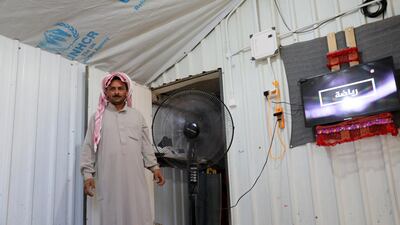The Jordanian city of Zarqa can potentially change the face of renewables in the region, setting the stage for a new kind of solar power to be delivered throughout the day and night costing just pennies.
The city’s historical roots date back to the early 8th century when Qasr Amra was built. The desert castle acted as a fortress and residence to the Umayyad caliphs, who would use it as a place to meet with tribes from Wadi Butum.
Now Zarqa, which means Blue City in Arabic, will turn Jordan’s second-largest city to green with a 50 megawatt (MW) solar photovoltaic (PV) project. The Water Authority of Jordan (WAJ) has invited companies to bid for the solar park, which will be 25 kilometres outside the city (45km from Amman).
Storage has long been renewable energy’s biggest obstacle but as costs decrease for options such as lithium ion batteries – coupled with the plummeting prices for solar panels – the combination could be a winner sooner rather than later.
There is a solar technology, concentrated solar power (CSP), that can have provide more than seven hours of storage. Abu Dhabi’s Shams 100MW plant as well as the upcoming fourth phase of the Mohammed bin Rashid Al Maktoum solar park in Dubai feature this system. And while each has its own advantages, CSP (also known as solar thermal) runs at a higher cost than PV because it has many more moving parts.
Operating costs for a solar thermal system, while also having a higher storage capacity, are 24 per cent higher than that for a PV system with storage at about US$61,000 per MW a year, according to Bloomberg New Energy Finance.
Yet last month in the United States, a PV plus storage project was just awarded in Arizona for around 6 US cents per kilowatt hours (price after removing the tax subsidy). But the issue is still the limited output from these types of batteries.
“For battery storage to transform PV and wind, which will be the game changer, batteries need to work for 12 or more hours with the capability of charging and discharging many more times a day without degrading quickly,” said Paddy Padmanathan, the chief executive of Saudi Arabia’s Acwa Power. “And I’m not convinced lithium ion batteries will get us there.”
Batteries on the market currently store energy for about four hours and last about 10 years. This means there will be at least one replacement set under a standard 20-year power purchase agreement.
But the possibility of adding storage is growing. Being able to scale up that storage to hold even more capacity is appealing to countries looking to decrease their import bill or for those eyeing ways to free commodities such as natural gas for export rather than domestic use.
And that is what makes the Zarqa project interesting. The WAJ has added energy storage, stipulating that any developer, as long as the company had bid for the original 50MW, may provide an alternative proposal. The new twist would be for a 75MW plant, as long as there was a “battery storage facility” to store one third of that total.
Thirty companies are in the running to move on to the next, more serious phase of the usual process of elimination. In this next step, WAJ will release the project specifications – including storage requirements such as output.
Abu Dhabi’s clean energy company Masdar is one of the 30 companies that aims to take part in the latest round. Mohamed Al Ramahi, the chief executive of Masdar, said it was still too early to determine if it will submit an alternative bid with storage. “I can tell you that we’re committed to the kingdom and that it is a very important destination for us, but it’s still unclear what the direction will be with storage,” he said.
One industry-established company has readied two alternative proposals, both totalling around 10 US cents per kilowatt hour, using a three-hour and four-hour storage battery. That still seems like a lot compared with prices that are cropping up elsewhere, but for a country that spends so much on fossil fuel generation it is cost competitive.
Jordan’s lowest solar PV project bid is 5.88 cents per kWh – without storage. And for a country that imports 97 per cent of its energy needs, at nearly 18 per cent of its GDP, having electricity generated from solar even when the sun goes down may override the higher price.
lgraves@thenational.ae
Follow The National's Business section on Twitter

